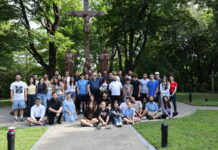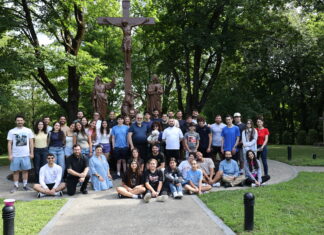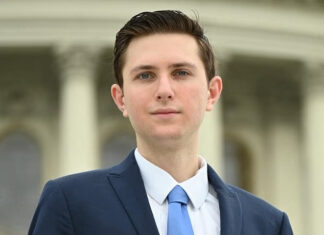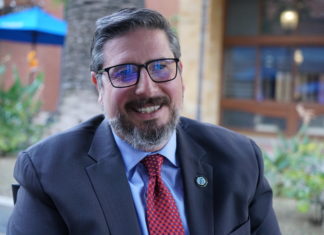TORONTO — Showing no signs of slowing down, Prof. Vahakn N. Dadrian, director of Genocide Research at the Zoryan Institute and renowned expert in the field of genocide studies, recently celebrated his 85th birthday. Widely recognized as the foremost scholar of the Armenian Genocide, Dadrian has devoted more than 50 years to the study of virtually every aspect of it, and he has no intention of stopping now.
On the occasion, President of Armenia Serge Sargisian commented, “You are one of the most important Armenian scientists of our time, whose work and findings are hugely meaningful for both public and political policy. Your investment in the campaign for international recognition of the Armenian Genocide and your ongoing efforts in fighting attempts at denial, has resulted in ongoing feats of success. Your work has a huge impact in the study of genocide and its denial, where Armenia has staked its place as a groundbreaking leader in the field.”
In honor of his steadfast dedication and immeasurable contribution, a list of congratulations from some of Dadrian’s admirers and colleagues worldwide follows.
Current president of the International Association of Genocide Scholars and director of the Irish Centre for Human Rights at the National University of Ireland in Galway, Prof. William A. Schabas, declared, “Vahakn Dadrian’s historical research on the Armenian Genocide is informed by a rich grasp of the legal issues. In particular, he has examined the efforts nearly a century ago to bring perpetrators of genocide to justice. His contribution both to historical and legal scholarship is enormous.”
Israel Charney, a past president of the IAGS, executive director of the Institute on the Holocaust and Genocide in Jerusalem, and editor-in-chief of Genocide Prevention Now, noted: “Prof. Vahakn Dadrian was one of the earliest students of comparative aspects of the Holocaust and the Armenian Genocide, and in recent years he is at the crest of his dedicated research, including a sterling study of the judicial process of post-Ottoman Turkish courts-martial.”
M.C. Bassiouni, professor of law and president of the International Human Rights Institute at De Paul University, has written, “Of all the conflicting and contradictory literature on the subject, including many Turkish publications denying, justifying or explaining what happened, Dadrian’s work is the most legally convincing and from other accounts, the closest to historical accuracy with such debated facts.”







